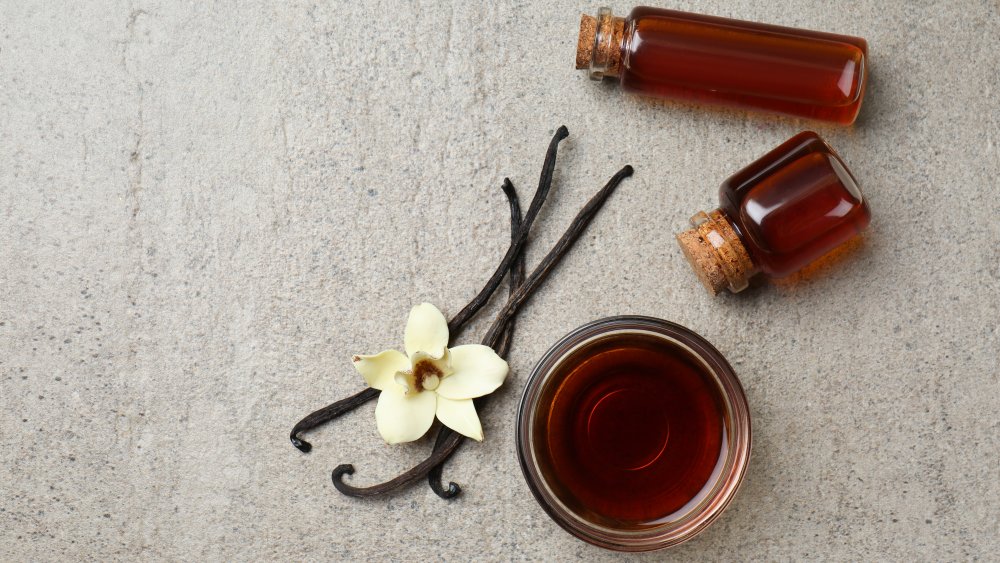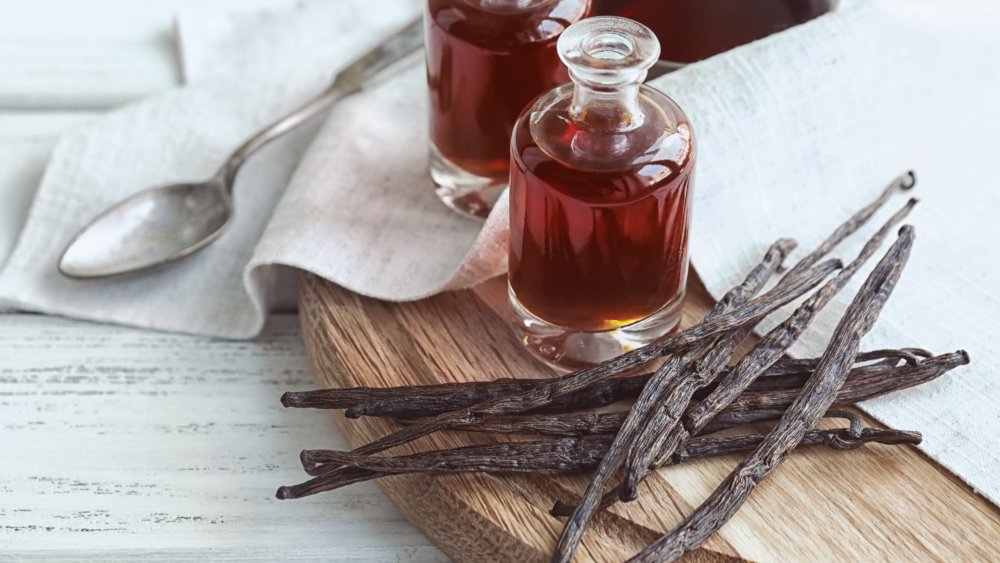Here's What You Can Substitute For Vanilla Extract
Vanilla extract is a baking staple, and one that seems to be called for in nearly every recipe for cookies and cakes — as well as making frequent appearances in numerous other desserts. The problem with vanilla is, when you run out and need to buy a new bottle, you may be in for some sticker shock.
This flavoring was never exactly cheap, but it seems to have gotten crazy expensive over the past few years. While some bakers prefer using vanilla paste or vanilla beans, these can be even pricier, and may be harder to find too — at least at your average non-gourmet supermarket. While imitation vanilla is an obvious cheap substitute, it's kind of a sketchy one — imitation vanilla is made from vanillin, a chemical compound that can be extracted from substances like coal or wood. Thanks, we'll pass.
Luckily, however, there are a number of other pantry staples that can be used as less pricey, yet perfectly acceptable, substitutes for vanilla.
Vanilla substitutes
The Spruce Eats suggests that other flavor extracts can stand in for vanilla, although they will add a subtle difference in taste, so it's crucial to pick one that complements your recipe. For example, peppermint extract may work well in a sugar cookie recipe, but almond or lemon might be preferable for a fruit pie filling.
Most extracts can be substituted in the same ratio as vanilla, but for almond extract, which has a strong flavor, you should only use half the recommended amount. While maple extract makes a great vanilla substitute, an even easier switch might be using maple or another variety of pancake syrup, both of which can be used to replace an equal amount of vanilla.
If you have a well-stocked liquor cabinet, you can always use an equal amount of rum or brandy, since most vanilla extracts are made from alcohol anyway. One food blogger with MyRecipes recommends using bourbon in place of vanilla, saying it adds caramel and maple notes to the vanilla flavor (and comes in at about a third the price, ounce for ounce). And yes, the alcohol in the booze (as with the alcohol in vanilla extract itself) will burn off in the cooking process, so nobody's going to get too tipsy when they dig in.

